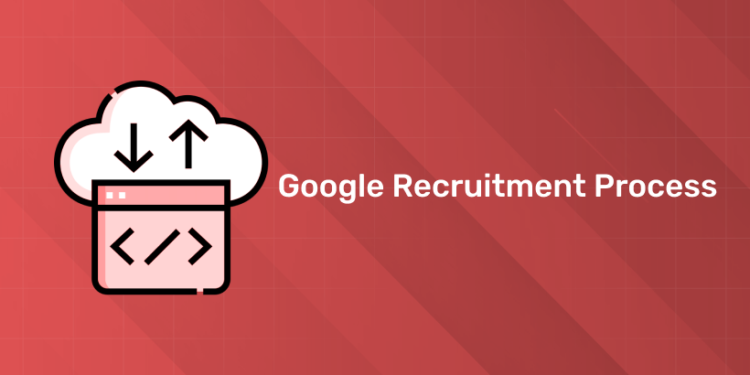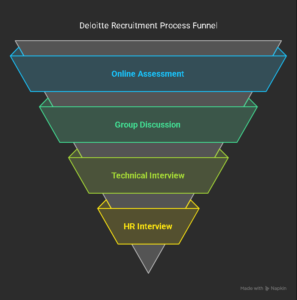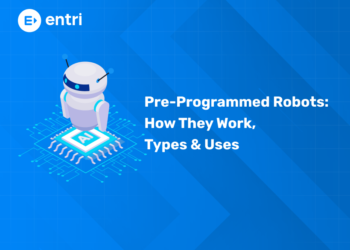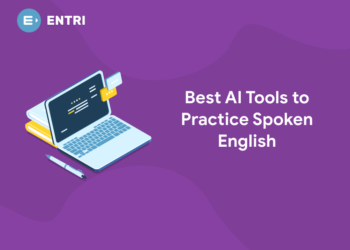Table of Contents
Introduction
Imagine waking up every day to a job where innovation isn’t just encouraged—it’s the heartbeat of everything you do. A place where your ideas could shape the future of technology, impact billions of lives, and earn you a seat at the table with some of the brightest minds on the planet. That’s the allure of working at Google, a company that’s not just a tech titan but a cultural phenomenon. But here’s the catch: the Google recruitment process is as legendary as its perks—rigorous, competitive and designed to find the best of the best. With millions of applicants vying for a handful of spots each year, how do you stand out? What does it take to crack the code and secure a role at this dream destination? In this blog post we’ll unravel the mysteries of the Google recruitment process, compare it briefly with Google’s approach and arm you with insider tips to ace every step. Whether you’re a coder, a marketer or a visionary leader, your journey to Google starts here—keep reading to discover how to turn your ambition into reality!
Get hands-on with our python course – sign up for a free demo!
About the Google Recruitment Process
1: Which of the following data structures allows elements to be added and removed in a Last-In, First-Out (LIFO) order?
The Google recruitment process is more than just a hiring pipeline—it’s a carefully crafted journey to identify talent that aligns with the company’s mission to “organize the world’s information and make it universally accessible and useful”. Let’s dive into what makes this process unique and why it’s worth your effort.
Company Overview
Google, founded in 1998 by Larry Page and Sergey Brin, has grown from a search engine startup into a global powerhouse under Alphabet Inc. With its hands in artificial intelligence, cloud computing, hardware and more, Google employs over 180,000 people worldwide. It’s a company that thrives on innovation, diversity and a relentless pursuit of excellence—qualities it seeks in every candidate.
Recruitment Process’s Work Culture
Google’s work culture is the stuff of legends: think free gourmet meals, nap pods and a “20% time” policy that lets employees chase passion projects. But it’s not just about perks—it’s about fostering a collaborative, creative environment where “Googlers” solve real-world problems. The recruitment process mirrors this ethos, testing not just skills but also cultural fit and problem-solving prowess.
Google Official Website
For the most up-to-date info, check out Google’s official website (www.google.com). It’s where you’ll find the company’s vision and values—information that will inform your application.
Google Website
The real treasure trove though, is the Google Website (careers.google.com). Here you’ll find job listings, application details and resources to prepare. This is where your journey begins—literally.
Visit Google’s Careers Page
Ready to get started? Visit the Google Careers Page today to see current job openings. Whether you’re looking for a software engineering role or a marketing position, there’s a spot for someone like you. Don’t just dream about it—apply!
Build Better, Together. 🛠️ Join the Entri Coding Community!
Beyond syntax, there’s strategy. 🚀 Join our subreddit for: Exclusive Coding Roadmaps 📍,Project Case Studies 📂 ,Interview Prep Tips 💡and more
👉 Join our Reddit communityGoogle Recruitment Process: Recruitment Process Overview
While Google’s process is a tech-driven marathon. As one of the “Big Four” accounting firms, Google hires talent across audit, consulting, tax, and tech roles and its process is designed to test both technical expertise and interpersonal skills. Here’s a quick look:
- Online Application: Submit your resume and cover letter via Google’s careers portal. Don’t submit generic applications.
- Online Assessment: Aptitude tests for numerical reasoning, verbal skills and logical thinking. Some roles may have coding or case study components.
- Group Discussion or JAM (Just a Minute): For freshers, this stage tests communication and quick thinking. You may be given a case study or asked to present ideas under time pressure.
- Technical Interview: Dive deep into your skills—programming for tech roles or domain knowledge for consulting. Be ready to explain projects or solve problems on the spot.
- HR Interview: This is about fit. Expect questions on your goals, teamwork and why Google. Confidence and authenticity are key.
- Offer Stage: Clear these rounds and you’ll get a verbal offer followed by a written contract after background checks.
Google’s process is streamlined but thorough and typically takes a few weeks. Less tech-heavy than Google’s but equally demanding on analytical and soft skills. Want to work with global clients and solve complex business problems? Google might be your calling—but let’s get back to Google because that’s where the magic happens for tech enthusiasts!
Get hands-on with our python course – sign up for a free demo!
Google Eligibility Criteria & Salary
Before you start with Google’s recruitment process let’s talk eligibility and rewards—because knowing what’s required and what’s at stake can motivate you.
Eligibility Criteria
Google’s casts a wide net but has clear benchmarks. For freshers you’ll need:
- B.E./B.Tech or MCA in any discipline (think CSE, ECE, IT, etc.) with at least 60% marks throughout your academic career (10th, 12th and graduation).
- No active backlogs at the time of application.* Good communication and interpersonal skills—Google likes articulate problem solvers.
- For some roles like Business Technology Analyst, coding (C++, Java) or data analysis is a plus.
Non-engineers can apply for certain profiles but tech roles prefer engineers. Check Google’s official careers page for role specific criteria.
Salary
Google’s pays well, especially for freshers. Entry-level roles like Business Technology Analyst or Associate Analyst Trainee start at ₹6-8 lakhs per annum in India, with bonuses and benefits adding to the total package. Experienced hires can see salaries go into double digits depending on expertise and location. It’s not Google-level crazy, but it’s a good base with room to grow in a big firm.
The takeaway? Google’s bar isn’t impossible to reach, but it demands consistency and skill. If you meet those criteria, you’re in the game—and it’s worth it. Now, let’s get you ready for Google’s process before we circle back to Google’s big stage.
Google Recruitment Process Preparation Tips
Cracking Google’s process isn’t about luck—it’s about strategy. Here’s how to prepare like a pro and walk in with confidence:
- Online Assessment: Brush up on quantitative aptitude, logical reasoning and verbal skills. Websites like PrepInsta or practice tests from SHL can simulate Google’s format. Time management is key—practice under pressure to nail the 90-minute window.
- Group Discussion: Read up on current business trends (AI, sustainability, digital transformation) to sound informed. Practice speaking clearly and concisely—record yourself if needed. Google’s loves candidates who listen as well as they argue, so balance assertiveness with teamwork.
- Technical Prep: For tech roles, revisit core subjects like data structures, algorithms or SQL. Be ready to code on a whiteboard or explain your final year project in detail. Non-tech roles? Focus on case studies—practice frameworks like SWOT or Porter’s Five Forces.
- HR Interview Confidence: Prepare a killer “Tell me about yourself” pitch that ties your skills to Google’s mission. Research the firm’s values (integrity, inclusion) and weave them into your answers. Questions like “Why Google?” are guaranteed—have a personal answer ready.
- Mock Interviews: Simulate the real thing with friends or mentors. Get feedback on your body language, tone and clarity. Google’s interviewers notice polish—dress sharp and smile.
- Stay Cool: Nerves can mess up even the best prep. Breathe before each round and treat every step as an opportunity to shine, not a hurdle to fear.
These are not steps—these are your pass to stand out. Google wants talent that’s prepared, polished and purposeful. If you crack this, you’ll be ready for any process—Google’s included. Now, let’s get into Google’s world and see how you can conquer that!
Build Better, Together. 🛠️ Join the Entri Coding Community!
Beyond syntax, there’s strategy. 🚀 Join our subreddit for: Exclusive Coding Roadmaps 📍,Project Case Studies 📂 ,Interview Prep Tips 💡and more
👉 Join our Reddit communityThe Google Recruitment Process: A Deep Dive
Now, let’s get to the main event—the Google recruitment process. It’s a gauntlet, but one that promises unparalleled rewards. Here’s how it unfolds, step by step, and how you can master it:
Step 1: Application—Your First Impression
It all starts at careers.google.com. Filter by role, location, or skills, and find your match—software engineer, product manager, or beyond. Craft a resume that’s concise (one page, please) and screams impact—quantify achievements (e.g., “Boosted app performance by 30%”). A cover letter? Optional, but a tailored one can set you apart. Submit, and cross your fingers—Google’s recruiters review millions of applications yearly, so make yours pop.
Step 2: Initial Screening
If your resume catches their eye, expect a call or email. This 30-minute chat with a recruiter isn’t just a formality—it’s your chance to shine. They’ll ask about your experience, skills and why Google. Be authentic, enthusiastic and ready with questions (e.g., “What’s the team’s biggest challenge right now?”). Pro tip: Research Google’s culture—words like “innovation” and “impact” resonate.
Step 3: Online Assessment (If Applicable)
For technical roles, you might face a coding test via platforms like HackerRank. Expect 1-2 problems on data structures or algorithms—think medium-to-hard difficulty on LeetCode. Time’s tight (60-90 minutes), so practice speed and accuracy. Non-tech roles might skip this, but don’t relax yet—interviews are next.
Step 4: Phone/Video Interview
This 45-60 minute call dives deeper. For engineers, expect coding questions (e.g., “Reverse a linked list”) on a shared doc—no IDE, just your brain and syntax. Behavioral questions like “Tell me about a time you failed” test your “Googleyness”—humility, adaptability and teamwork. Prep with the STAR method (Situation, Task, Action, Result) and code daily.
Step 5: Onsite Interviews (Virtual or In-Person)
The big leagues: 4-5 interviews, 45 minutes each, with Googlers from your potential team. Technical roles face whiteboarding challenges—system design (e.g., “Design YouTube’s backend”) or algorithms. Non-tech roles tackle hypothetical scenarios or leadership questions. Every interviewer scores you on skills, problem-solving and fit. It’s intense, but they want you to succeed—show your thought process, not just answers.
Step 6: Hiring Committee Review
Your scores and notes go to a committee. They don’t meet you—just your performance data. They’re looking for excellence across the board, not perfection in one area. This step’s opaque, but trust your prep—it’s out of your hands now.
Step 7: Offer and Negotiation
If you’re in, a recruiter calls with the good news. Google’s offers are generous—think ₹20-40 lakhs for freshers in India, or $120K+ in the US, plus stock and bonuses. Negotiate if you’ve got leverage (other offers help), but their packages are hard to beat. Background checks follow, then you’re a Googler!
Eligibility Criteria
Google’s flexible—any bachelor’s degree works, but tech roles favor CS or engineering grads. No strict percentage cutoff, but strong academics help. Skills matter more: coding (Python, Java, C++), problem-solving, and passion for tech. Experience (internships, projects) seals the deal.
Preparation Tips for Google
- Code Like a Champ: Grind LeetCode (150+ problems, medium/hard). Master arrays, trees, and dynamic programming.
- System Design: Study “Designing Data-Intensive Applications” for scale and architecture.
- Behavioral Prep: Reflect on past wins and flops—Google loves self-aware candidates.
- Mock It Up: Practice with peers or platforms like Pramp. Simulate Google’s style.
- Know Google: Dive into their blog, YouTube channel, or annual reports. Align your goals with theirs.
The process is tough—only 0.2% of applicants make it—but it’s a golden ticket. Visit careers.google.com to confirm details and start prepping. Your Google dream is closer than you think!
Get hands-on with our python course – sign up for a free demo!
Conclusion
The Google recruitment process isn’t just a test—it’s a proving ground for the bold, the brilliant, and the determined. From the first click on careers.google.com to that triumphant offer call, every step challenges you to bring your A-game. It’s a journey worth taking—not just for the paycheck or perks, but for the chance to join a legacy of innovation that’s reshaped the world. Yet both demand preparation, passion, and persistence. So, what’s stopping you? The tools are here: a roadmap to Google’s process, eligibility insights, and actionable tips to shine. Don’t just read this—act on it. Visit Google’s Careers Page now, find your role, and start building the skills that’ll get you noticed. The clock’s ticking, and millions are competing—but you’re not like them. You’ve got the drive, the know-how, and now the guide. Go claim your spot at Google—because the future doesn’t wait, and neither should you!
Build Better, Together. 🛠️ Join the Entri Coding Community!
Beyond syntax, there’s strategy. 🚀 Join our subreddit for: Exclusive Coding Roadmaps 📍,Project Case Studies 📂 ,Interview Prep Tips 💡and more
👉 Join our Reddit communityFrequently Asked Questions
What Makes the Google Recruitment Process Different from Other Companies?
The Google recruitment process stands out like a beacon in the tech world, blending rigor with creativity in a way few companies can match. Unlike traditional hiring pipelines that might rely solely on resumes and a single interview, Google’s journey is a multi-stage adventure—application, screening, coding tests, and a marathon of onsite interviews. It’s not just about your technical chops (though those matter immensely); it’s about your “Googleyness”—that unique mix of curiosity, teamwork, and problem-solving flair. While a company like Deloitte might focus on structured assessments and domain expertise, Google throws curveballs like system design challenges or hypothetical scenarios to see how you think on your feet. The process can stretch over weeks or months, but that’s because they’re not just filling a role—they’re scouting talent to shape the future. Ready to stand out? It starts with a visit to careers.google.com!
How Long Does the Google Recruitment Process Typically Take?
Patience is your ally here—Google doesn’t rush brilliance. From the moment you submit your application, the timeline can span anywhere from 4 weeks to 3 months, depending on role, location, and volume of applicants. The initial resume review might take 1-2 weeks before a recruiter reaches out. Pass that, and you’re into a phone screen (another week or two), followed by coding tests or onsite interviews scheduled over a few more weeks. The hiring committee’s review and final offer stage can add another 2-4 weeks, especially if background checks are thorough. It’s a marathon, not a sprint, but every delay is a sign they’re meticulous about finding the right fit—you! Compare that to Google’s tighter 3-6 week window, and you’ll see Google’s process is an investment in excellence. Start prepping now—it’s worth the wait.
What Kind of Roles Can I Apply for Through the Google Recruitment Process?
Google isn’t just for coders—it’s a playground for dreamers of all stripes. Software engineers dominate the headlines, tackling everything from Android to AI, but the careers.google.com portal bursts with variety. Product managers shape tools like Google Maps, marketers craft campaigns that reach billions, and data analysts crunch numbers to drive decisions. Even creative souls find a home in design or content strategy roles. Freshers can aim for Associate Product Manager or Software Engineer tracks, while seasoned pros might eye leadership gigs in cloud computing or sales. Each role demands excellence, but Google’s open to any degree—CS grads have an edge in tech, but passion and skills can trump pedigree. Browse the Careers Page today—your dream job’s waiting to be claimed!
What Skills Does Google Look for in Candidates During the Recruitment Process?
Google doesn’t just want skills—they want superpowers. For tech roles, coding mastery (Python, Java, C++) and algorithmic wizardry (think binary trees or graph traversal) are non-negotiable—expect to prove it in interviews. System design chops shine for senior roles, while non-tech positions demand analytical thinking, creativity, and communication that cuts through noise. Beyond the hard skills, “Googleyness” is the secret sauce: adaptability, a love for learning, and a knack for collaboration. They’ll test your problem-solving with brain-teasers like “Design a scalable search engine” and your humility with questions like “How did you handle a team conflict?” It’s less about what you know and more about how you think. Start honing those skills now—Google’s watching for the next big thinker, and it could be you!
How Can I Prepare for the Technical Interviews in the Google Recruitment Process?
Conquering Google’s technical interviews is like training for the Olympics—it takes grit and strategy. First, dive into coding platforms like LeetCode or HackerRank; aim for 150+ medium-to-hard problems on arrays, strings, and dynamic programming. Practice whiteboarding—no IDE crutches here—so you can explain your logic aloud. For system design (senior roles), study real-world systems—how does YouTube stream globally? Books like “Cracking the Coding Interview” or online courses from Coursera can sharpen your edge. Mock interviews are gold—grab a friend or use Pramp to simulate Google’s style. Time yourself; 45 minutes flies when you’re debugging under pressure. Finally, brush up on Google’s tech stack (e.g., TensorFlow, Go) to show you’re in sync. Start today—every line of code brings you closer to that offer!
What Is “Googleyness,” and How Is It Assessed in the Recruitment Process?
“Googleyness” isn’t a buzzword—it’s the heartbeat of Google’s culture, and they’ll hunt for it in you. It’s that spark of curiosity, resilience, and team spirit that turns good candidates into great Googlers. During interviews, they’ll probe with behavioral questions: “Tell me about a time you took a risk” or “How do you handle ambiguity?” They’re not after rehearsed answers—they want stories that reveal your character. Coding rounds test your problem-solving, but “Googleyness” shines when you ask smart questions or admit what you don’t know. It’s less about perfection and more about growth. Google might prioritize polish, but Google craves raw potential. Reflect on your experiences—your next anecdote could seal the deal. Check careers.google.com for more on their values!
What Happens If I Don’t Pass the Google Recruitment Process—Can I Reapply?
How Competitive Is the Google Recruitment Process Compared to Deloitte’s?
Picture this: Google’s a gladiator arena, Google’s a chess match—both tough, but in different ways. Google sees over 3 million applications annually for a few thousand spots—a 0.2% acceptance rate that rivals Ivy League schools. Google’s “Big Four” prestige draws crowds too, but its broader focus (audit, consulting, tech) spreads the competition thinner. Google’s process is tech-heavy, with coding gauntlets and system design marathons, while Google leans on aptitude tests and case studies—less intense for non-coders. Google’s “Googleyness” filter adds a wild card; Google wants fit but tests it more formally. Both demand excellence, but Google’s scale and cachet make it the ultimate prize. Ready to fight for it? Hit careers.google.com and step into the ring!
What Are the Benefits of Landing a Job Through the Google Recruitment Process?
Landing a Google gig isn’t just a job—it’s a golden ticket. Salaries dazzle—freshers in India might snag ₹20-40 lakhs, while US roles start at $120K+, with stock options and bonuses that grow fatter with tenure. Perks? Free meals, gym access, and that famous “20% time” to chase passion projects—think Gmail’s origin story. You’ll work with geniuses, tackle problems that touch billions, and build a resume that opens doors forever. Google offers solid pay (₹6-8 lakhs for freshers) and prestige, but Google’s global impact and innovation edge are unmatched. Plus, the culture—collaborative, quirky, relentless—fuels your soul, not just your bank account. Visit careers.google.com to see why it’s worth the grind!
How Do I Start My Journey with the Google Recruitment Process?
Your Google quest begins with a single step—clicking over to careers.google.com. Browse roles that match your skills, from engineering to marketing, and read the descriptions—they’re your cheat sheet. Tailor your resume to scream impact (numbers beat fluff), and craft a cover letter if you’re feeling bold. Hit submit, then prep like your future depends on it—because it might. Code daily, rehearse your “Why Google?” pitch, and study their mission until it’s in your bones. Network with Googlers if you can; insider tips are gold. The process is brutal, but the reward? A career that rewrites your story. Don’t wait—start today, and let careers.google.com be your launchpad to greatness!











